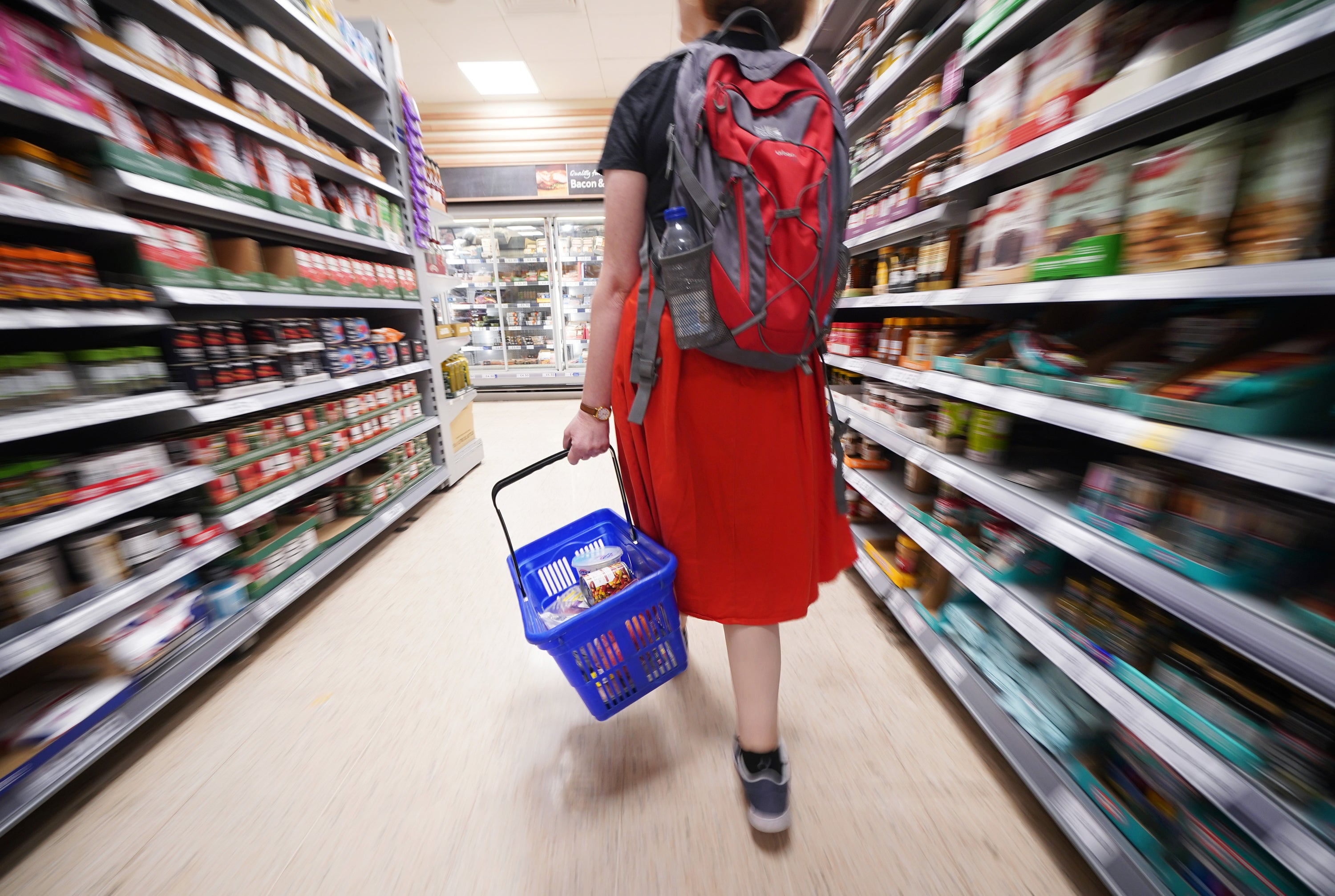Egg crisis hits as grocery price inflation soars to record 17.1%
Cost of milk, eggs and margarine driving up inflation, research firm Kantar says

Grocery prices have sky-rocketed by a record 17.1 per cent compared to a year ago, according to new research which underlines that the cost of living crisis is far from over.
The soaring cost of everyday items such as milk, eggs and margarine led to the hike, research company Kantar said as it warned that one in four shoppers were struggling financially.
Analysts at the firm looked at grocery inflation, or rising prices, in the four weeks to 19 February and found a 17.1 per cent rise when compared with the same period last year – the highest rate since records began in 2008.
Inflation, fuelled by Vladimir Putin’s illegal war in Ukraine, has started to fall over the past three months but remained at 10.1 per cent in January, down from 10.5 per cent in December.
The cost of food started to rise shortly after Russia’s invasion, which sent the prince of energy soaring and disrupted supplies of grains, vegetable oils and fertiliser.
Cost of living pressures failed to dent enthusiasm for Valentine’s Day celebrations this year, with sparkling wine sales doubling and shoppers spending an extra £5m on boxed chocolates, according to Kantar.
Sales of steak were also up by a quarter in the seven days to 14 February compared to the previous week.
February also saw sales of cold treatments rising by 82 per cent, cough liquids up 78 per cent and cough lozenges 70 per cent higher.
Kantar said it was closely following the impact of vegetable and fruit shortages on sales in the coming weeks, although it noted that the pack limits introduced by some supermarkets were unlikely to affect consumers as they usually bought fresh items in smaller quantities.
Fraser McKevitt, Kantar’s head of retail and consumer insight, said: “Shoppers have been facing sustained price rises for some time now and this February marks a full year since monthly grocery inflation climbed above 4 per cent. This is having a big impact on people’s lives.
“Our latest research shows that grocery price inflation is the second most important financial issue for the public behind energy costs, with two-thirds of people concerned by food and drink prices, above public sector strikes and climate change.

“One quarter say they’re struggling financially, versus one in five this time last year. The numbers speak for themselves.”
Meanwhile, Aldi’s market share reached a record 9.4 per cent and remains the fastest-growing grocer, with sales up by 26.7 per cent as customers shop around for cheaper good.
It was closely followed by Lidl, which increased sales by 25.4 per cent and achieved a market share of 7.1 per cent.
Frozen food specialist Iceland increased its market share to 2.4 per cent, up from 2.3 per cent last year, as spending through its tills increased by 10.8 per cent.
Some companies have been passing on rising costs to their customers while others tried to reduce prices.
Fast food chain McDonald’s hiked the price of five items as inflation eats into its running costs.
The cost of its chicken mayo and double cheeseburgers went up by 20 per cent, from 99p to £1.19 and £2.49 to £2.69 respectively.
The bacon mayo chicken went from £1.59 to £1.79 – a hike of 12.6 per cent.
Medium-size soft drinks will also rise by 7.1 per cent from £1.39 to £1.49.
McDonald’s, which has more than 1,00 restaurants across the UK, said it hoped to soften the blow of the price hikes by bundling some burgers with sides and a drink in a saver meal.
Waitrose, meanwhile, announced what it said amounted to £100m in reductions across its essentials range.
The high-end supermarket said items such as ham, cheese and sausages would see reductions.
Competitors Aldi and Lidl recently carried out similar moves to help people whose budgets have been reduced by soaring inflation.






Join our commenting forum
Join thought-provoking conversations, follow other Independent readers and see their replies
Comments